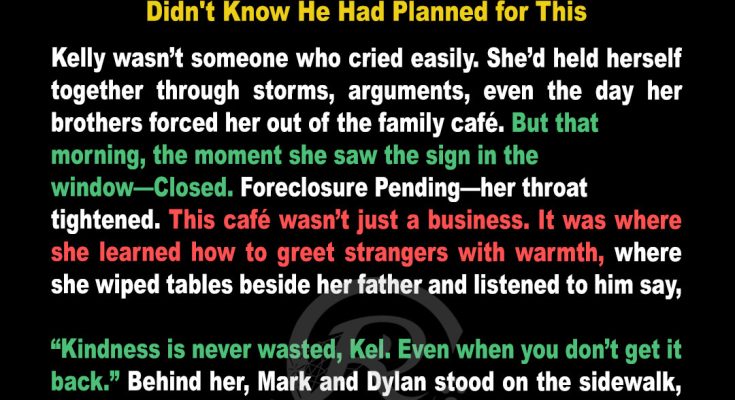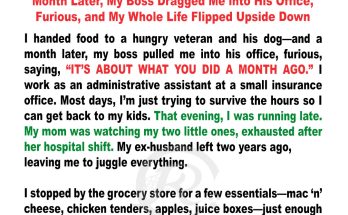After their father’s death, Kelly’s brothers forced her out of the family café, but they had no idea their father had quietly left her the key to something far more powerful.
Kelly never imagined her life would fall apart so quickly. At 18, she already understood that kindness wasn’t always returned, not even by your own family.
She had always felt a little out of place in her home. Not unloved, exactly, but always outnumbered. Her dad was the kind of man people respected without question. He had warm eyes, calloused hands from decades of work, and a laugh that filled the café before the smell of coffee ever reached the tables.
Her brothers, Mark, who was 28, and Dylan, 26, were different. They never carried the weight of the café the way their father did. In fact, they never made an effort. To them, the café was just a stepping stone to something bigger or at least something more profitable.
Kelly, on the other hand, loved that place like it was alive.
Her mom had died when she was six, and ever since then, the café had been her second home. She’d spent her after-school hours wiping tables, learning to blend batter, watching her dad shape dough with that quiet rhythm he had.
Customers used to call her “Little Sunshine” because she’d greet everyone by name, sometimes with a flower tucked behind her ear.
Meanwhile, Mark and Dylan were seldom there.
She remembered one Sunday morning when her dad had gently nudged Dylan awake with a broom handle after he skipped his café shift again.
“You said you’d cover the early hours,” her dad reminded him.
“I was out,” Dylan groaned, dragging a pillow over his head. “Ask Kelly. She’s practically your shadow, anyway.”
Her dad didn’t reply. He just shook his head and went back downstairs, but Kelly caught the flicker of disappointment in his eyes.
As Kelly grew older, she noticed the flicker in her father’s eyes more often. Mark was smoother than Dylan. He always dressed well and liked to pitch big ideas, but none of them ever turned into anything real. When it came to actual work, he disappeared as quickly as steam rising off a coffee cup.
So when her dad passed, the grief hit Kelly like a truck. She was still in her senior year, juggling exams and coffee orders, and suddenly, she had to plan a funeral.
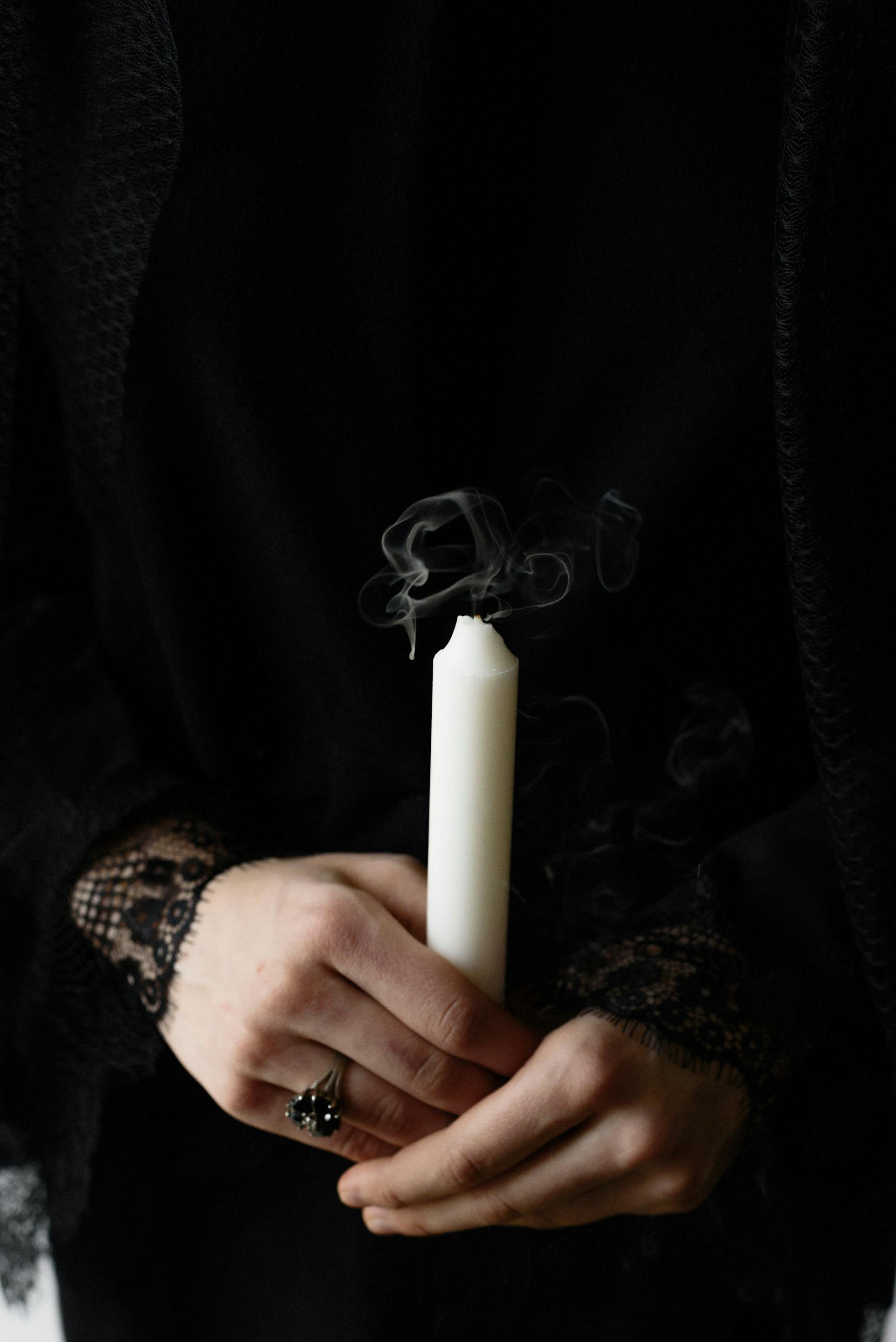
A woman in a black dress holding a white candle | Source: Pexels
What she didn’t expect, and couldn’t have predicted, was what came next.
The lawyer’s office was colder than she remembered it being when they’d signed the café’s insurance papers years ago. Kelly sat between her brothers, her hands clasped tightly in her lap. She was still wearing her father’s watch on her wrist. It was a little too big, but she didn’t care.
The lawyer cleared his throat.
“According to Mr. Emerson’s will, the café will be split 50-50 between Mark and Dylan.”
Kelly’s eyebrows lifted. She turned toward the lawyer, blinking slowly.
“And to Kelly,” he continued, reaching into a small envelope, “your father has left this.”
He placed a small, rusted key in her palm.
There was silence. Then Mark snorted.
“That’s all you get? A key?”
Dylan smirked. “Maybe it opens a box of tissues for your tears.”
Kelly looked at the key. It was warm from the lawyer’s hand, but felt heavier than it should have.
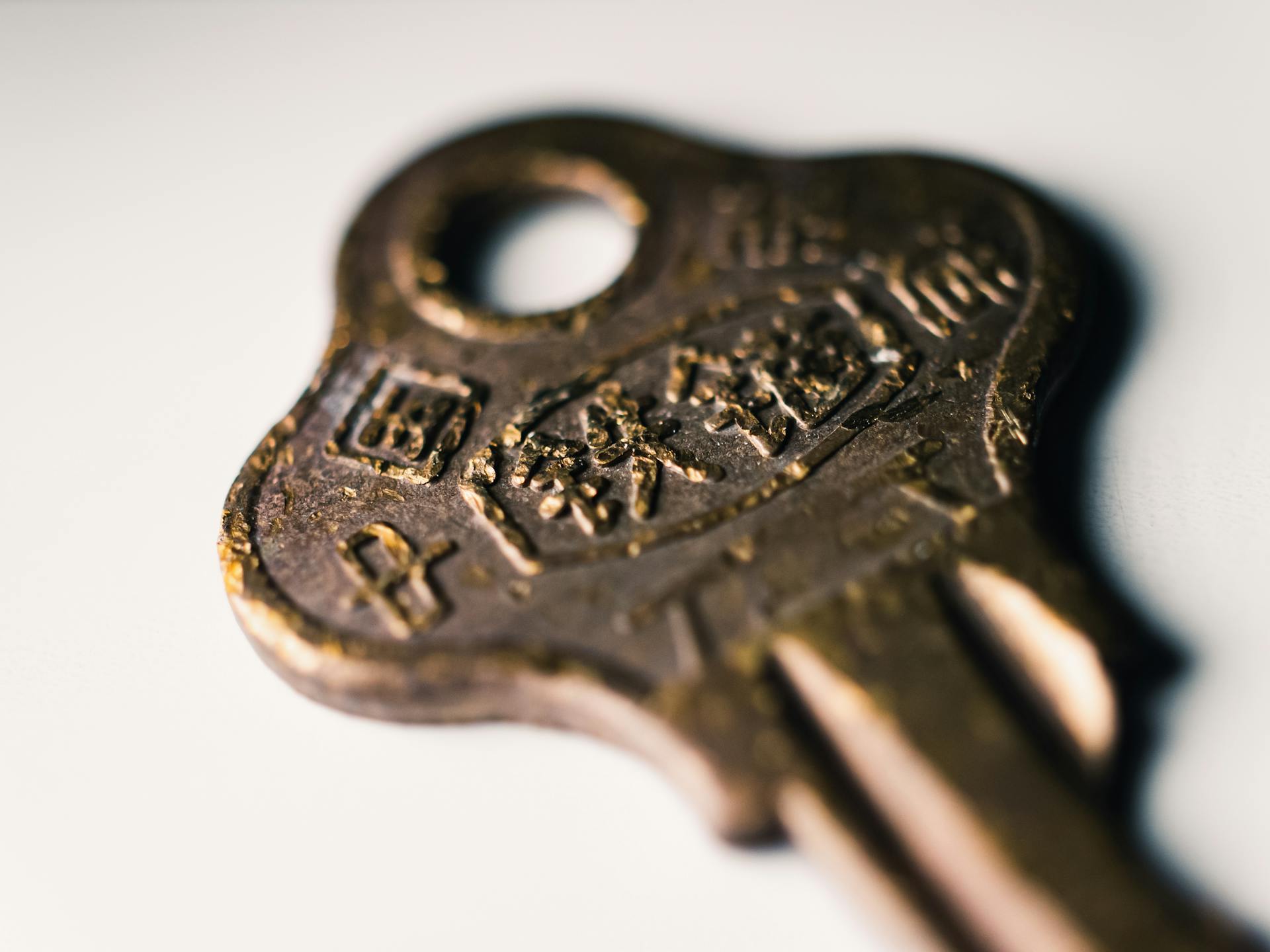
A close-up shot of a vintage brass key | Source: Pexels
She opened her mouth to speak, but nothing came out.
The next morning, wearing her café apron, she walked to the front entrance as she always did. She had made fresh flyers the night before and brought new recipe cards she and her dad had written together. The moment she reached the door, Mark was already there, holding a cup of overpriced coffee from the chain down the street.
“You’re done here,” he said without looking up from his phone.
Kelly froze. “What?”
“You don’t own anything,” he added, finally meeting her eyes.
Dylan leaned in from behind, locking the café door. “We’re the bosses now. Go find another job.”
Kelly’s voice trembled. “Dad wanted us to run it together. He said that in the will.”
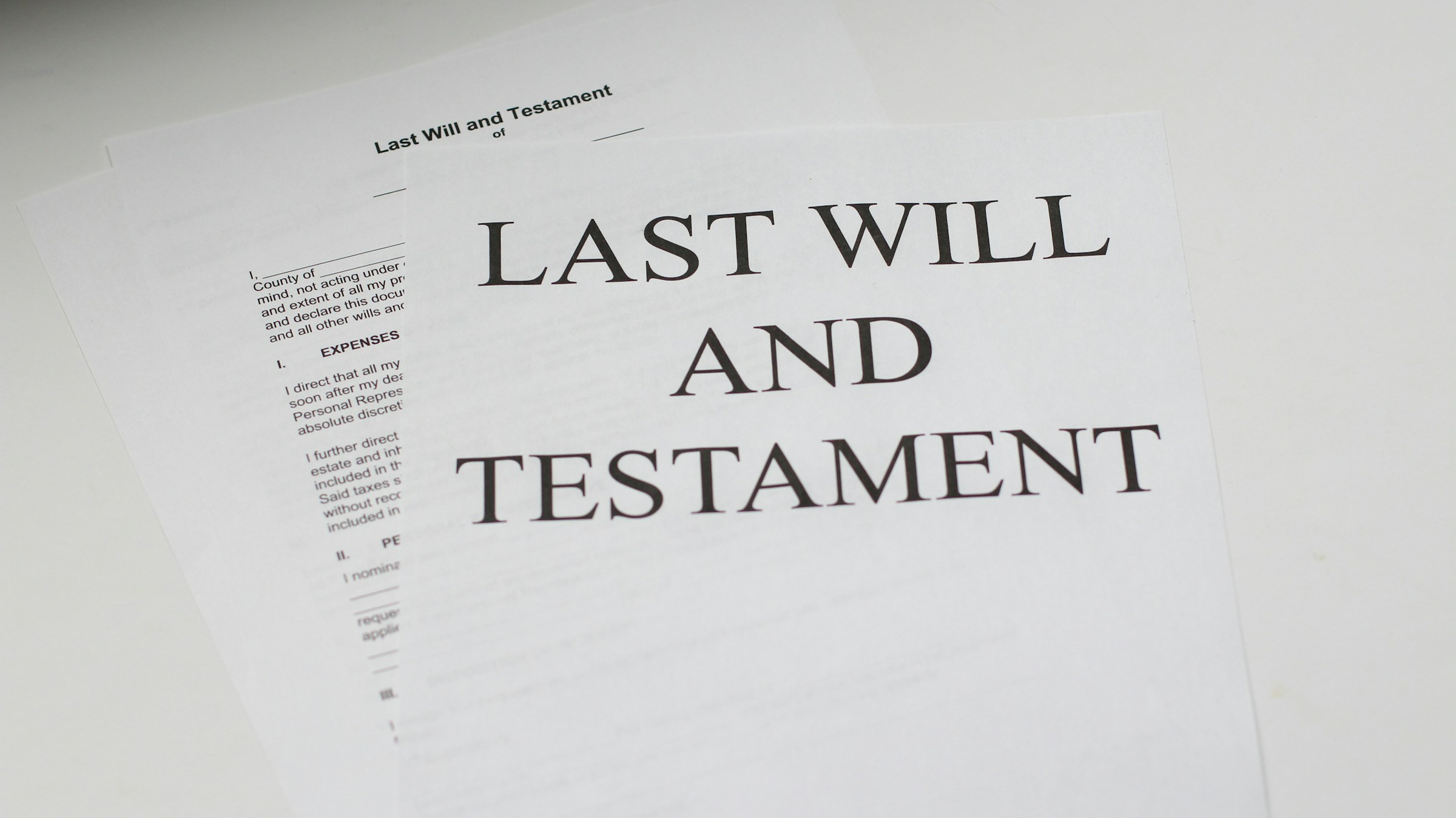
A last will document | Source: Unsplash
Mark raised an eyebrow. “Yeah, well, he’s not here now, is he?”
Dylan added, “Go home, Kelly. You’ve had your fun playing waitress.”
She stood there for a long moment before finally walking away. Her apron was still tied around her waist, and her hands wouldn’t stop shaking. She didn’t cry until she was two blocks away.
The weeks that followed were quiet. She worked a few part-time jobs, helped at the library, and sometimes tutored younger students in math. But she walked past the café every day, watching it slip further into chaos.
Customers left. Orders were wrong. Vendors stopped delivering. Kelly heard through the grapevine that her brothers couldn’t keep up with taxes or repairs. One time, she passed by and saw Mark yelling into his phone while Dylan sat on the curb, sweating through his shirt.

An angry man talking on the phone | Source: Pexels
Then one day, she noticed a sign on the window.
“Closed. Foreclosure Pending.”
Kelly stopped in her tracks. Her chest tightened.
She pressed her fingers against the glass and stared inside. Dust coated the counters. A chair had been knocked over and left that way. The space that had once smelled like warm sugar and brewed coffee now looked cold and dead.
Behind her, Mark and Dylan argued on the sidewalk.
“You said you paid the freaking rent last month,” Mark snapped.
“No, I said I would pay it,” Dylan fired back. “You were supposed to do the taxes.”
Kelly stood still. They didn’t even notice her.
She stepped inside one last time. The bell above the door still chimed, but the sound felt hollow. She walked to the counter, ran her hand over the worn wood her dad used to polish every morning, and whispered, “I’m sorry, Dad. I tried.”
The door opened behind her.
She turned, expecting one of her brothers.
But it was the family lawyer.
He wasn’t wearing a suit this time, just a tan coat and a look of quiet understanding.
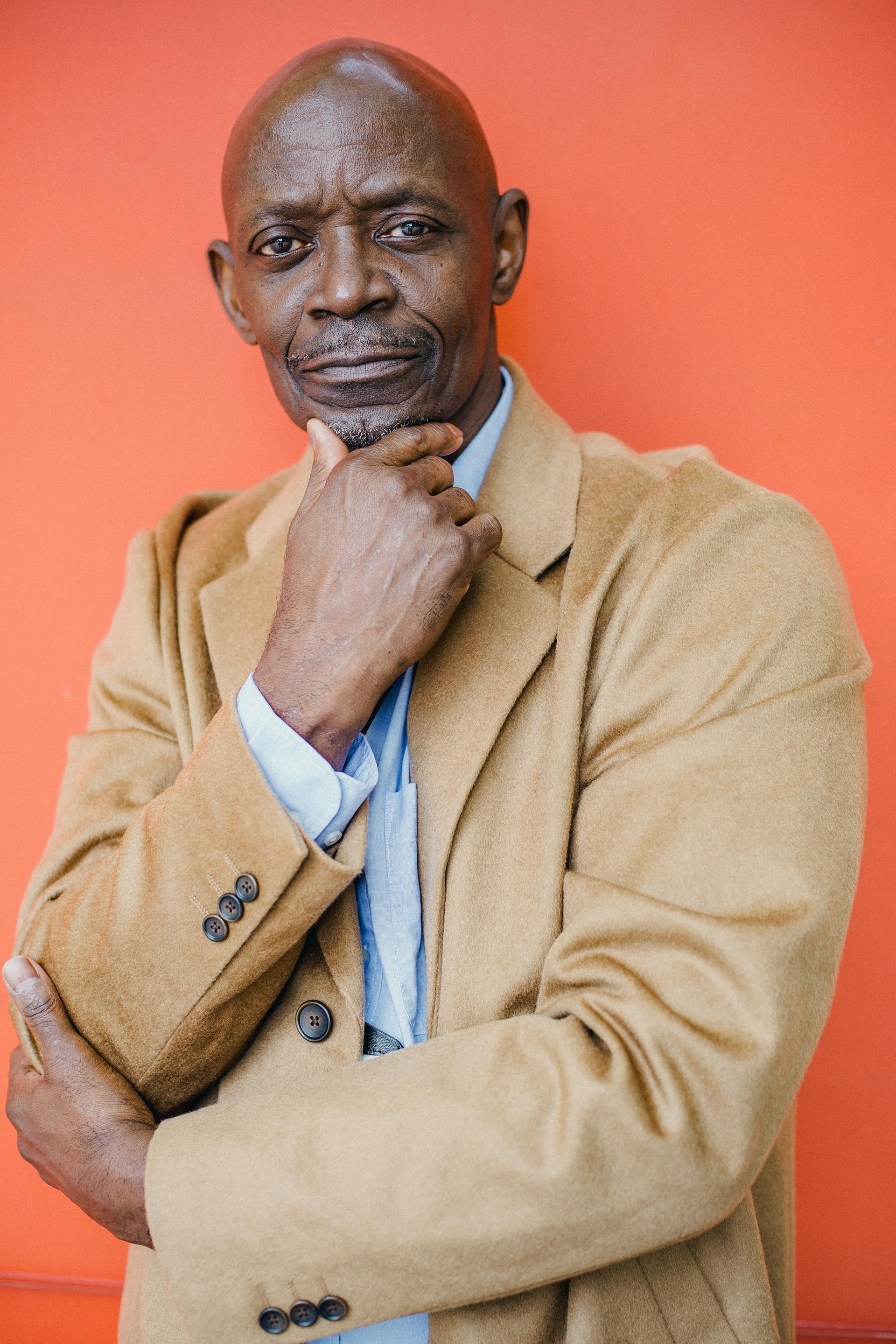
A black man in a coat looking at someone | Source: Pexels
“Kelly,” he said gently, “your father knew this day would come. He knew what your brothers would do.”
She stared at him, confused. “But the café… he left it to them.”
The lawyer nodded. “He did. And he also left you something more important. Do you know what that key he left you really opens?”
Kelly frowned. “No. I just thought it was sentimental. Like maybe something to his old drawer or—”
He smiled faintly and pointed out the window.
Across the street, an old two-story building stood quietly between a flower shop and a used bookstore. Its worn brick walls, black double doors, and tall windows, which caught the sunlight just right, had always made it stand out.
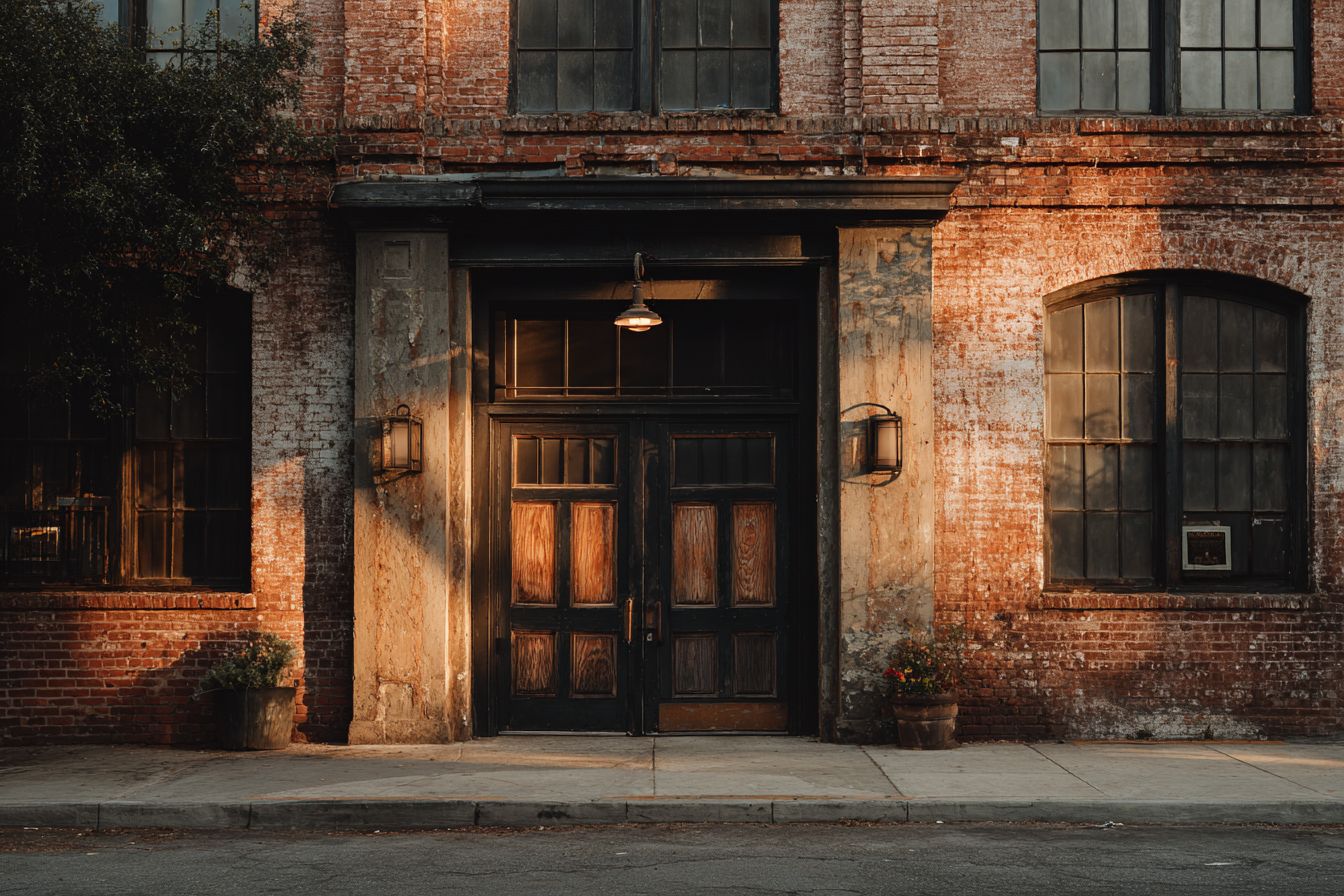
An old two-story building across the street | Source: Midjourney
Kelly had walked past it for years, but she had never stepped inside. Her dad used to glance at it now and then, like it held some private meaning only he understood.
She stared at it now.
Her voice came out small. “That building?”
“Go,” the lawyer said. “Your father wanted you to find it today.”
Kelly’s hand tightened around the key.
As she stepped out of the café and crossed the street, her heart thudded so loudly it echoed in her ears. She didn’t know what she would find inside that building. But for the first time in months, something stirred inside her. It was faint but real, a flicker of hope.
And this time, she wouldn’t be turned away.
Kelly stood in front of the building, the key shaking in her hand. The afternoon sun reflected off the dusty windows, casting long shadows across the sidewalk. Her heart pounded against her ribs. She took a deep breath, then slipped the key into the old brass lock.
It turned easily.
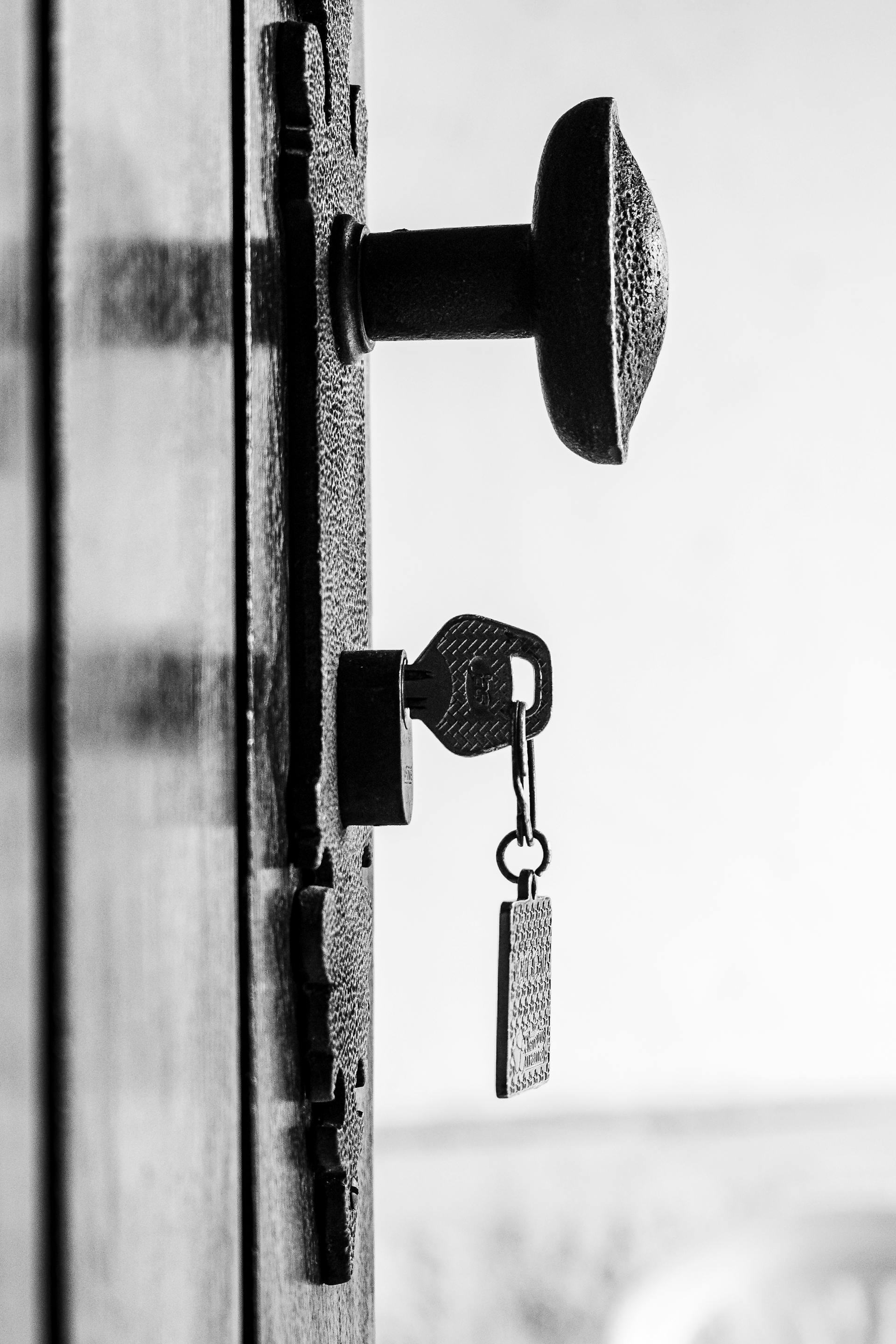
A vintage key inserted in a lock on a rustic door | Source: Pexels
The door creaked as she pushed it open, and the scent of old wood and faint sawdust drifted out.
Inside, the space was quiet. Dust particles floated in the sunlight, catching in the still air like glitter. She stepped in slowly, her boots tapping softly against the concrete floor. Her eyes swept across the room.
There were unfinished counters along the walls, smooth but bare. Wooden shelves were half-installed, a few still leaning against the walls. In one corner stood a stack of unused stools, still wrapped in plastic. A few faded family photos lay on a table, next to rolled-up sketches and blueprints.
And there, taped to the front of the counter, was a note in her father’s handwriting.
Kelly’s breath caught as she pulled it free.
“Your mother always dreamed of opening our second café here. Finish it for us. This place is yours.”
She read it twice, then again, slower. Her fingers trembled as she folded the note to her chest.

A woman reading a letter | Source: Pexels
That was when she cried.
Not the quiet kind of tears she had been holding in since the will was read. This was different. She let it out. She cried for her father, for her mother, for every late night in the old café, for every shift she worked alone, and for every moment she had spent doubting herself.
Her knees gave out, and she sat on the floor, hugging the letter like it might disappear if she let go.
When the crying finally stopped, she just sat there, blinking at the space around her.
It was hers.
It had always been hers.
*****
The next few months were harder than anything she’d done before. The building had good bones, but everything needed work. She barely had savings left after paying rent and bills, but she refused to let that stop her.
She sold some of her old clothes, picked up another job at a diner across town, and called in every favor she could think of. Some of her dad’s old friends came by to help, painting walls, fixing light fixtures, and sanding down the counters.
Mr. Harris, a retired electrician who had known her father since high school, showed up one Saturday morning with his toolbox in hand.
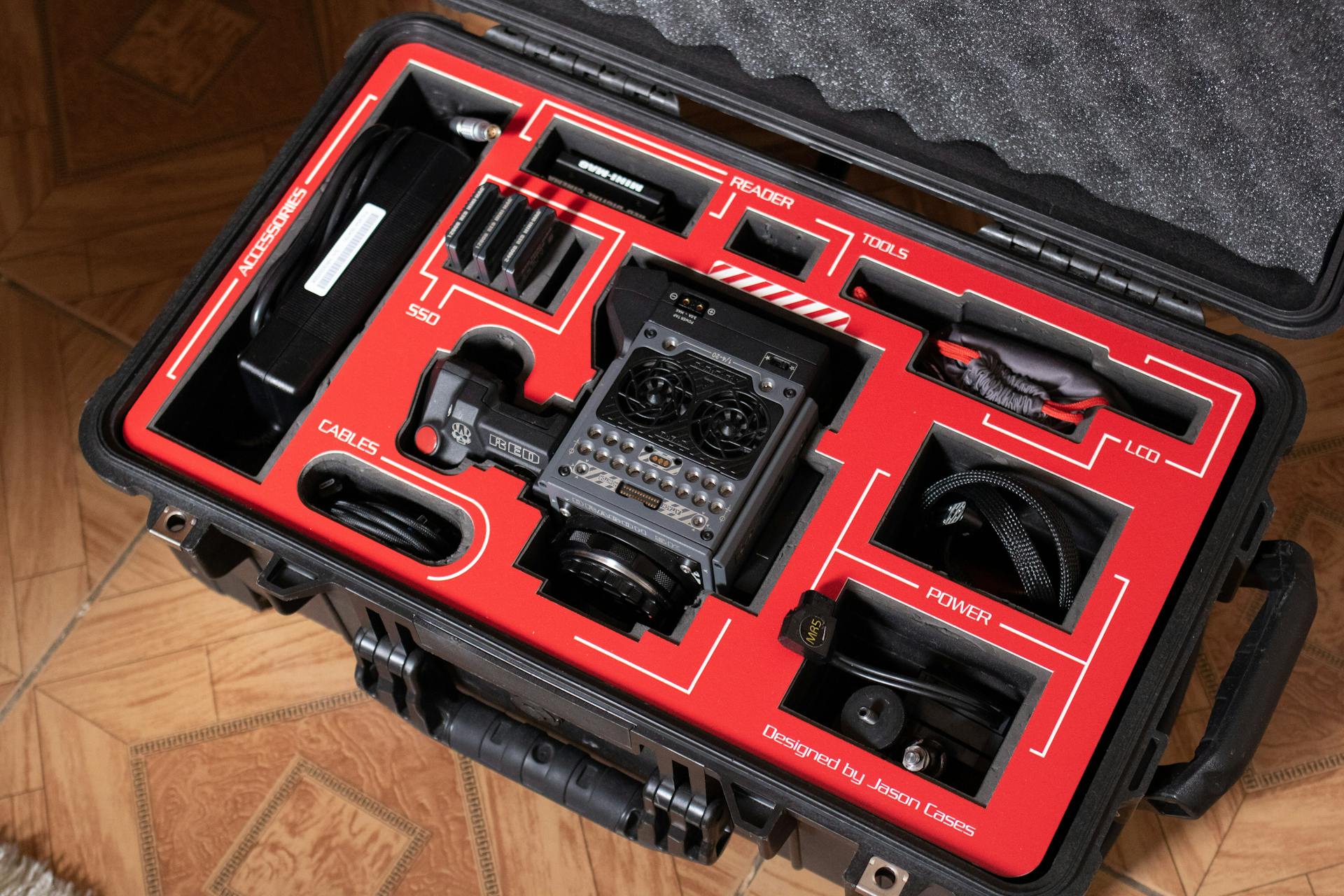
A black and red toolbox | Source: Pexels
“I heard you’re opening up your parents’ dream,” he said with a wink. “Your dad once helped me fix a sink at midnight. Let’s call it payback.”
“Thank you. Really. I didn’t expect—”
“You’re John’s daughter,” he interrupted. “People remember that.”
Even strangers started to show up. A woman named Beth, who used to be a regular at the original café, donated some old art frames for the walls. A group of college kids offered to help with social media promotion once the café was ready to open.
One afternoon, while scrubbing down the front windows, Kelly spotted Dylan across the street. He was standing alone, shoulders hunched, looking like a shadow of his old self. Their eyes met briefly. He didn’t wave. Neither did she.
Later that night, as she locked up, she found a crumpled envelope at the front door. Inside was a small note written in rough handwriting.
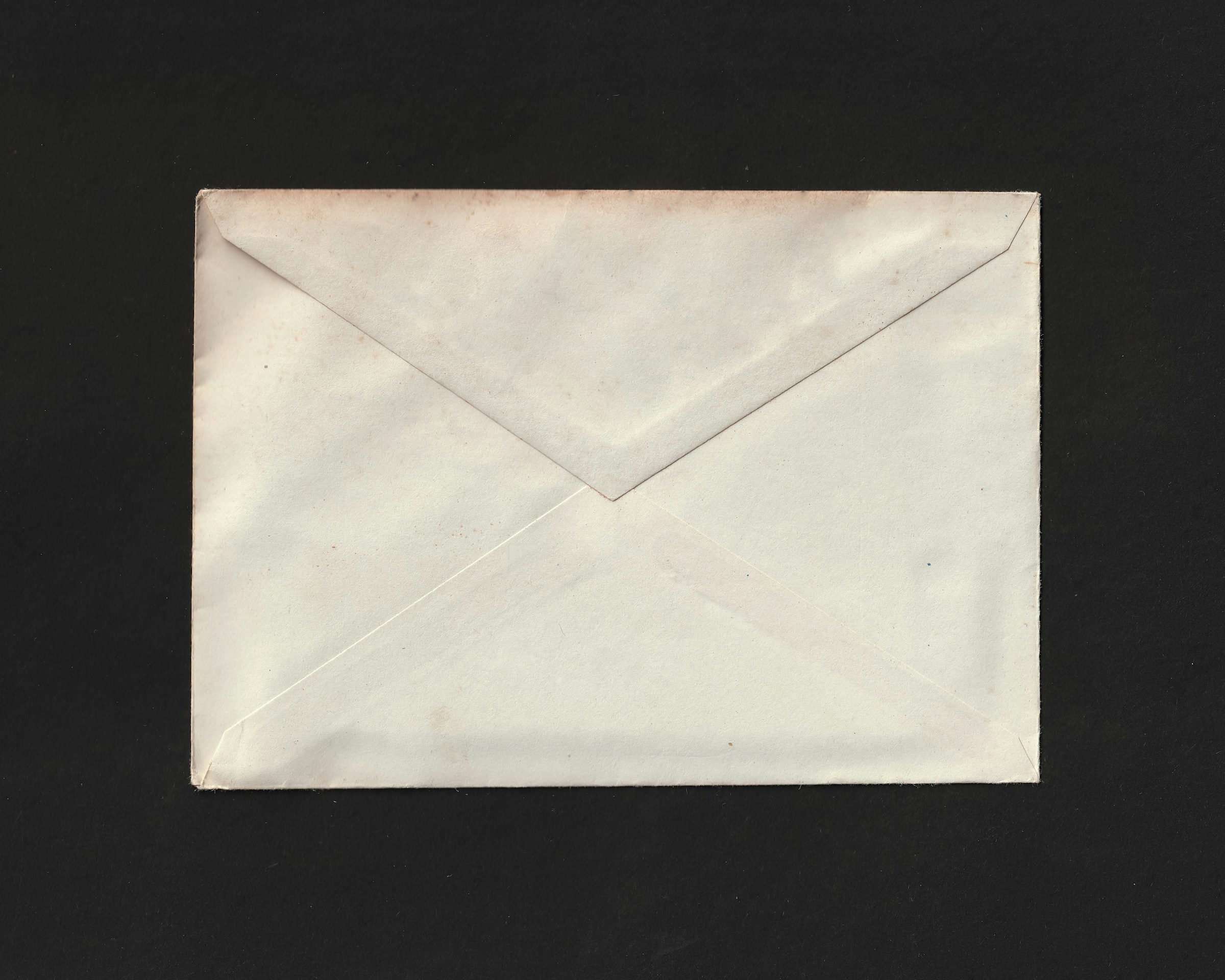
A white envelope | Source: Unsplash
“I didn’t know what we had. I’m sorry. — D.”
Kelly stood there for a long moment before folding the note and placing it in a drawer beneath the register.
She didn’t need revenge.
She had a purpose.
*****
When opening day finally arrived, the sun was already high in the sky. Kelly stood behind the brand-new counter, wearing her mother’s necklace and her father’s old apron.
The sign above the door read: Marigold Café. It was her mother’s favorite flower.

A close-up shot of marigold flower | Source: Pexels
The air inside was filled with the scent of cinnamon buns, coffee, and something else she hadn’t felt in a long time: hope. The walls were painted a soft yellow; the shelves held small potted plants and framed photos of her family, and gentle music played from a speaker tucked behind the counter.
The doors opened at 8 a.m.
By 8:05 a.m., a line had formed down the block.
Kelly moved with ease as she greeted customers, poured coffee, and shared stories. People often asked about the name, and she told them with a smile.
“My mom always dreamed of this. She loved marigolds. Said they were small but bold — like me.”
The regulars came first. Then new faces. Then a familiar one.
Mark walked in around noon.
Kelly froze.
He looked tired. His shirt was wrinkled, and he was holding a takeout cup from a gas station. He glanced around the café, lips parting slightly, then walked up to the counter.
She didn’t speak first.
Mark cleared his throat. “This place is… really something.”
Kelly nodded. “Thanks.”

A young woman with freckles looking straight ahead | Source: Pexels
“I didn’t know Dad had this planned,” he said after a pause. “We didn’t know.”
“You didn’t care to know,” Kelly replied, her voice calm.
Mark looked down at the floor. “Fair.”
There was a long silence. Then, he asked, “Are you doing okay?”
Kelly gave a small smile. “I’m doing better than okay.”
He nodded, tapped the counter twice, and turned to leave.
She watched him go. He didn’t look back.
*****
Over the next two years, Marigold Café became a staple in the neighborhood. People came for the coffee, stayed for the warmth, and returned because it felt like home.
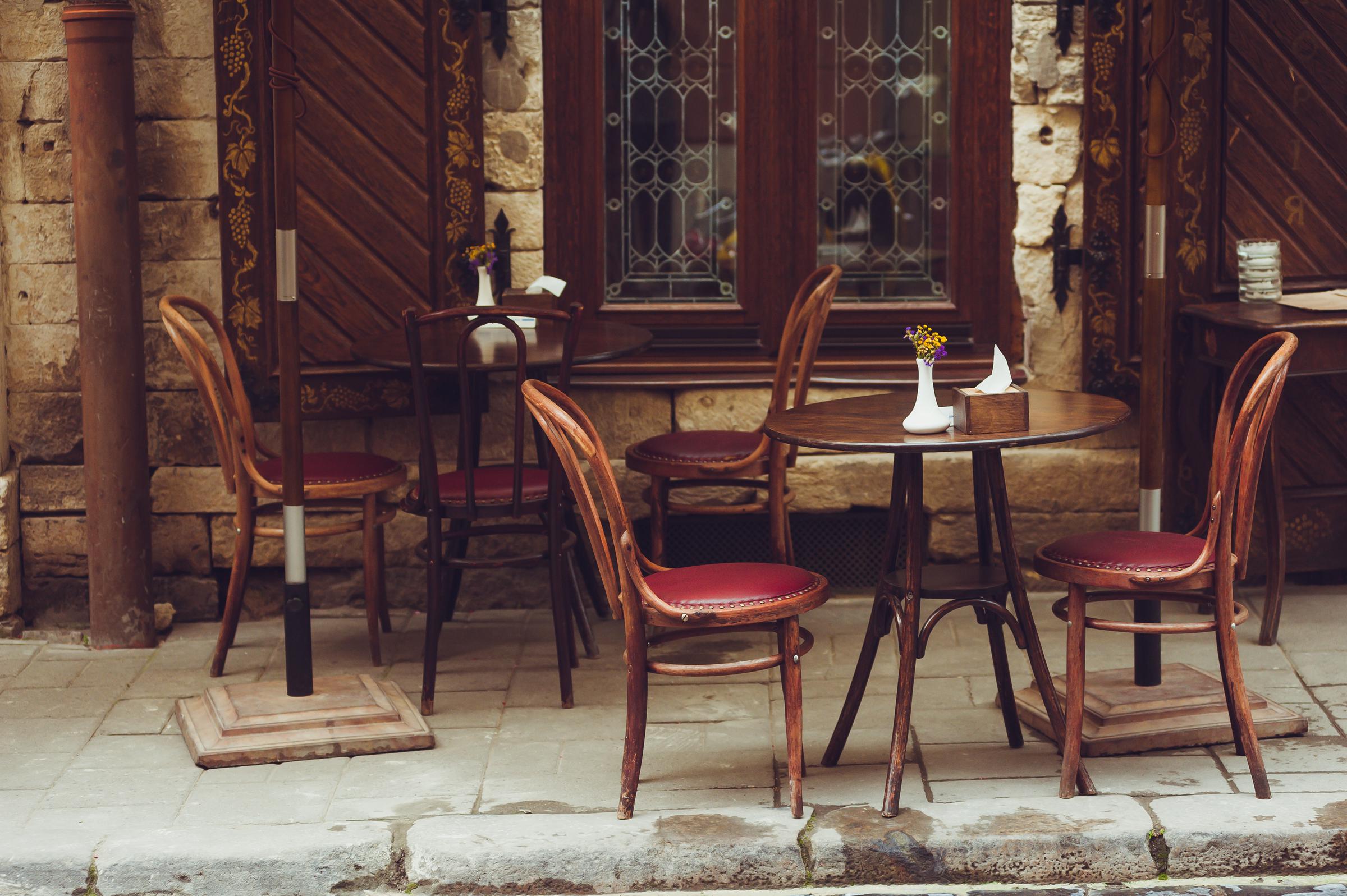
A cozy café in the center of an old town | Source: Shutterstock
Kelly kept the same routines her dad had taught her. She polished the counters every morning, greeted each customer by name, and wrote thank-you notes to first-time visitors. She trained local teens who needed work, donated leftover pastries to shelters, and ran Saturday baking classes for kids.
She hung her dad’s letter in a frame behind the counter, right next to a photo of her mom.
Every morning, she whispered, “We did it.”
And she meant it.
The little café her parents had dreamed about was alive, not just in bricks and paint, but in laughter, in people who felt seen, and in the simple magic of fresh bread and good coffee.
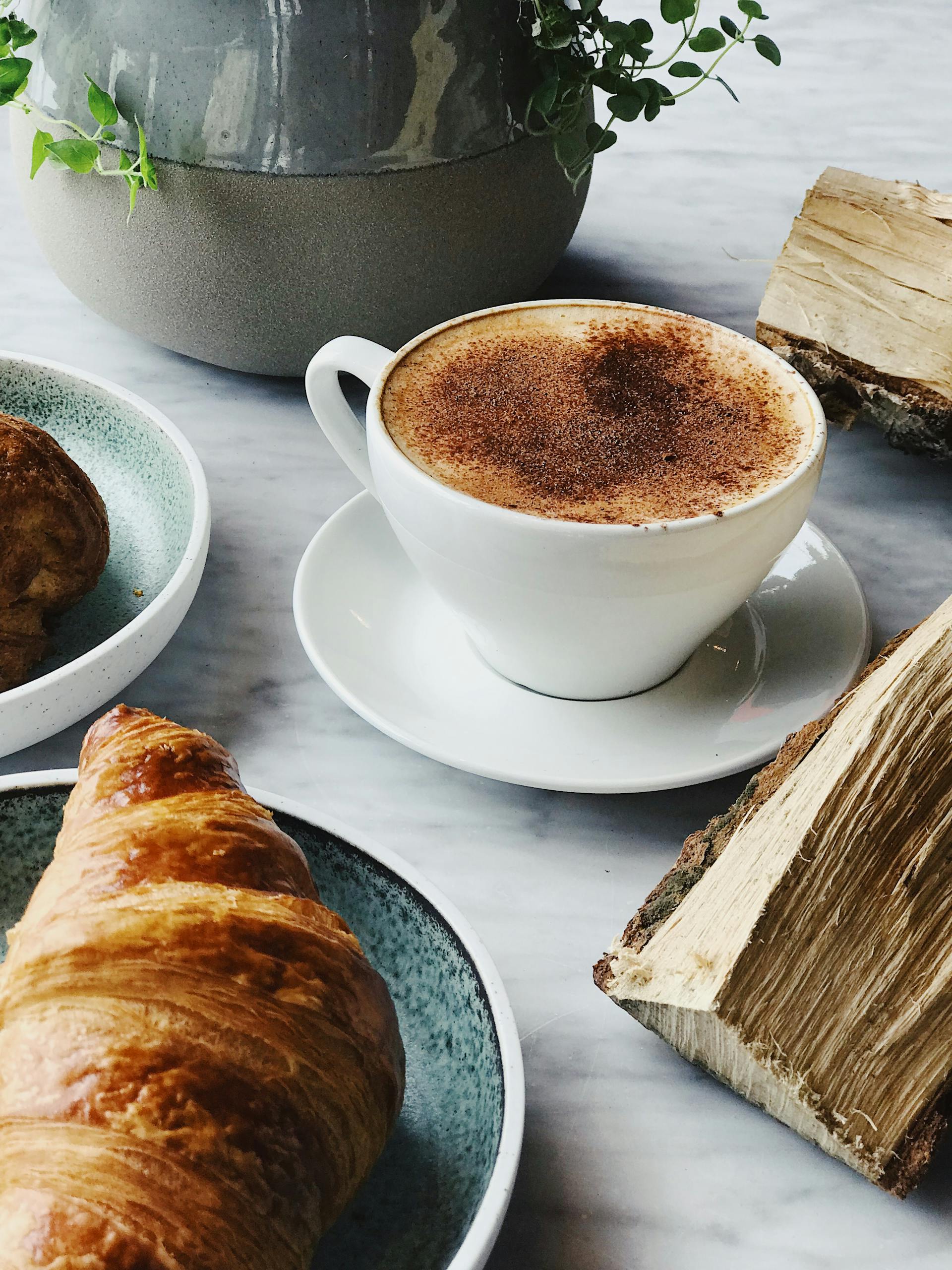
Croissant and coffee served on a table | Source: Pexels
*****
By her 21st birthday, Kelly had saved more than she expected. She had learned how to manage the books, budget for supplies, plan seasonal menus, and lead a team, all things her brothers had never taken the time to learn.
One rainy afternoon, as she sorted through invoices in the back office, her phone buzzed.
It was a real estate listing.
The old café, her family’s original place, was back on the market.
Kelly stared at the screen.
She didn’t hesitate.
*****
Three months later, she stood in the doorway of the old café, now hers once again. The lights were dim, the paint chipped, but it still smelled like cinnamon and stories.

Delicious cinnamon rolls | Source: Pexels
Mark and Dylan never reached out after that. She didn’t expect them to.
She stepped inside, ran her hand across the old counter, and closed her eyes.
“I’m home.”
She renovated the place slowly, keeping the original tile, updating the wiring, and adding a mural of her parents on the back wall. When she reopened it, she named it “Emerson & Co.,” a quiet tribute to the people who had built the foundation.
Now, she owned two cafés — one named after her mother, and the other honoring her family.
Together, they told a full story.
A story of loss and legacy. Of being pushed aside and finding your own place, anyway. And of turning grief into something you can hold in your hands.
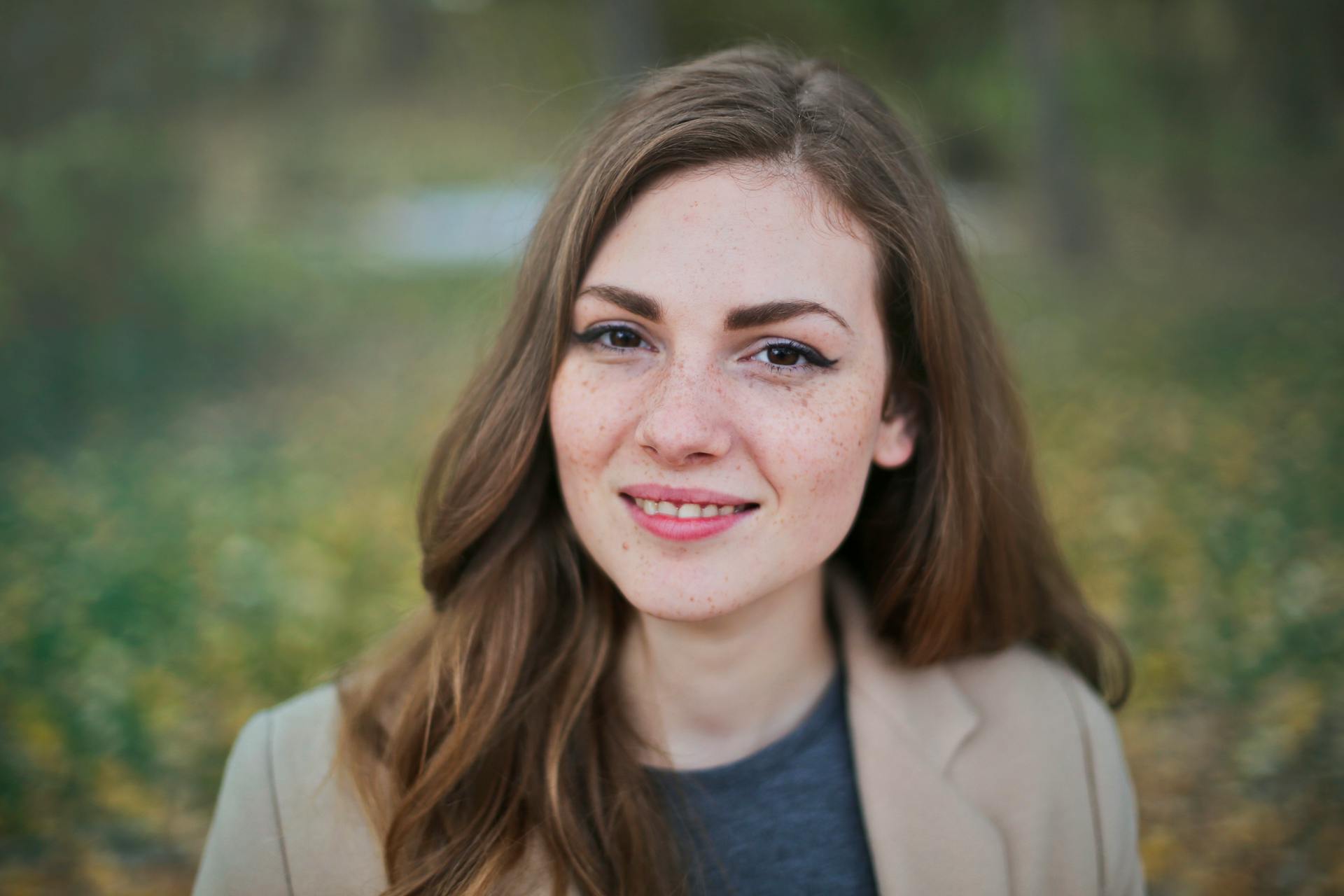
A smiling young woman standing outside | Source: Pexels
